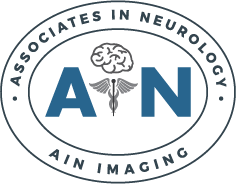
Most of us experience headaches from time to time, but when they occur more frequently and last longer than what is typical, this is a sign of chronic headaches. While there are several factors that contribute to chronic headaches, work-related stress is a common cause. You can find out more below about how stress at work can cause chronic headaches and some practical tips on how to manage work-related stress to address the issue.
Signs of Chronic Headaches
Tension headaches are the common type of headache that cause mild to moderate head pain that may spread throughout the neck and shoulders. They often feel like a steady ache and as if a tight band is wrapped around your head. Tension headaches can also cause problems concentrating, fatigue, irritability, loss of appetite, and sleep problems.
Tension headaches are not caused by an underlying medical disorder, and there are many factors that can contribute to them, including hormones and genetics,however, work-related stress, anxiety, and a lack of sleep, are common causes. Tension headaches can be episodic or they can be a chronic condition, with episodes occurring daily and lasting for weeks, months, or even years.
If you are experiencing frequent headaches, it is important to visit your healthcare provider for a diagnosis, as tension headaches can share symptoms with other conditions and medical problems.
Tension headaches can be diagnosed by reviewing your medical history and symptoms and by carrying out a thorough medical and neurological exam. Tests, such as electroencephalogram (EEG), a CT scan, or MRI scan,may also be necessary to rule out any underlying conditions or diseases. You may also be asked to keep a record of your headaches for your healthcare provider to review.
Managing Work-Related Stress
Although many people find relief from tension headaches with over-the-counter medications, such as aspirin, ibuprofen, and acetaminophen, it is important to try to treat the underlying cause of the headaches, such as with positive lifestyle changes.
If work-related stress is the cause of your tension headaches, there are some steps you can take to help better manage your stress to reduce your headache symptoms:
- Understand the Causes of Work-Related Stress
Work-related stress can emerge from various sources. It could be due to job insecurity, long working hours, a toxic work environment, lack of social support at work, or job demands that exceed your capacity. Understanding the root cause is the first step to managing work-related stress. It helps you identify what’s causing the stress,so you can address it effectively.
- Learn Stress Management Techniques
Stress management techniques are effective strategies to help deal with work-related- stress and promote well-being. These includes :
- Deep breathing exercises – an effective way to slow down your breathing and reduce muscle tension when you experience stress.
- Mindfulness –a relaxation technique that involves focusing on the present moment to help you feel more grounded and in control.
- Time management and taking regular breaks – to help you prioritize tasks and avoid burnout.
- Physical exercise –activities such as yoga or going for a walk during your lunch hour can help you feel more relaxed and reduce your stress levels.
- Prioritize Self-Care
Self-care is essential for managing work-related stress and preventing chronic headaches. Good self-care practices include:
- Getting enough restful sleep (aim for at least 7 hours per night)
- Having a good sleep routine by going to sleep and waking at the same time each day
- Practicing good nutrition, avoiding alcohol, and staying hydrated
- Eating regular meals/not skipping meals
- Incorporating activities that bring pleasure and relaxation into your routine, such as hobbies, regular massage, spending time with friends and family, and going on vacations.
- Communicate With Your Colleagues and Supervisors
Sometimes, work-related stress can arise from misunderstandings or poor communication with your colleagues or supervisor. Addressing such issues can help you feel less stressed and more supported at work. If you are feeling overwhelmed with work or unable to manage your workload, try initiating a conversation with your manager to find a solution to the problem. If you feel that you are not getting the support you need to manage work-related stress, consider speaking to human resources, a mentor, or a professional coach, or seeking advice from a mental health professional.
- Seek Out Professional Help
If you are experiencing chronic headaches or stress levels that negatively impact your daily activities, it’s important to seek professional help. Visit your primarycare provider to discuss your concerns and to explore the best options to help you.
There are a range of effective treatments available to help you, including medications, biofeedback, cognitive behavioral therapy, and medical advancements such as BOTOX® injections and laser acupuncture, which can help lessen headache severity and frequency and better manage chronic headaches.
Mental health professionals such as therapists or counselors can also help you address and manage work-related stress and provide you with additional coping techniques tailored to your needs.
Work-related stress is a common cause of chronic headaches. It is important to identify the underlying cause and to seek professional help to successfully manage work-related stress and prevent chronic headaches.
Stress Headache Treatment Near Me in Southeast Michigan
If you are experiencing chronic or stress-related headaches, talk to the experienced neurologists at Associates in Neurology. We provide a variety of services to help diagnose and treat a range of conditions, including headaches and migraines, back and neck pain, movement disorders, and much more.
To learn more about us or to arrange an evaluation at one of our convenient locations,call us today at (248) 478-5512 or use our secure, online Request an Appointment form to schedule your visit.


